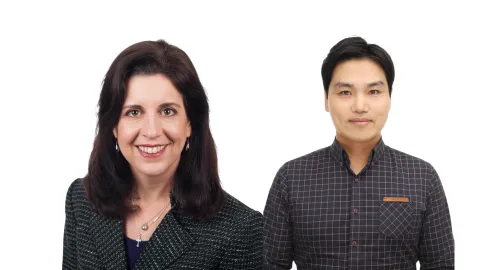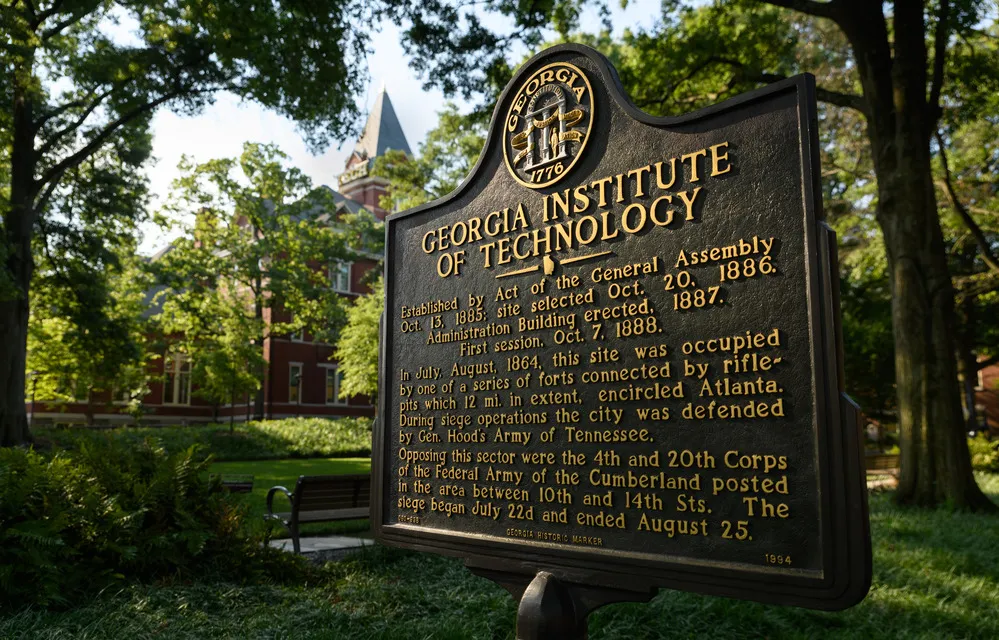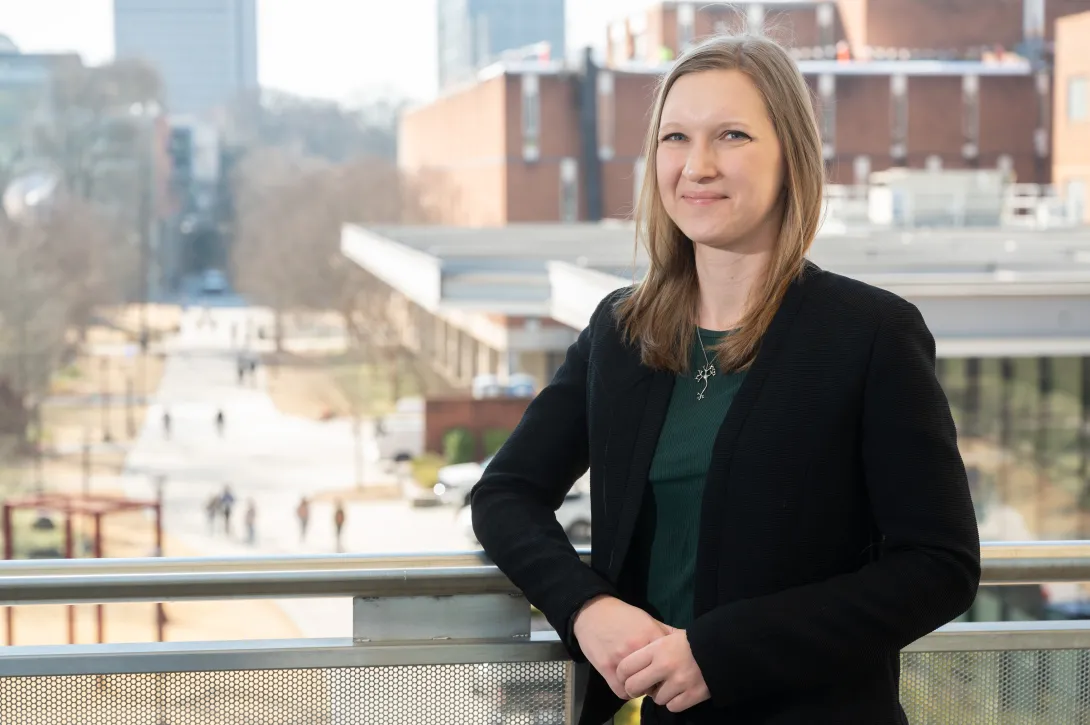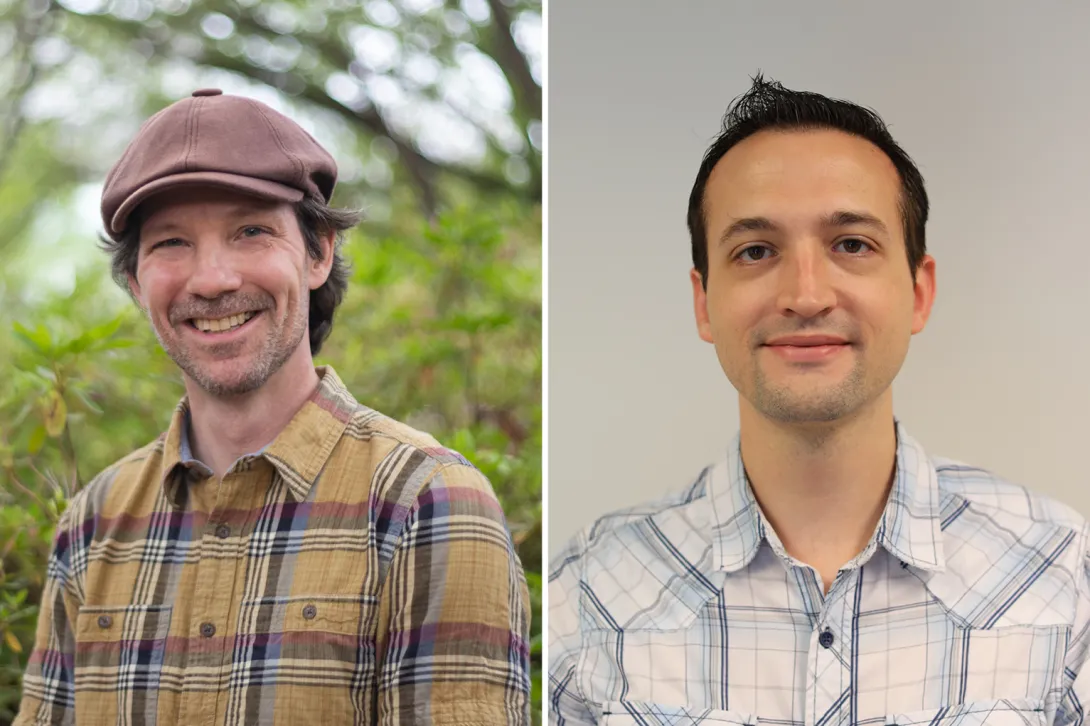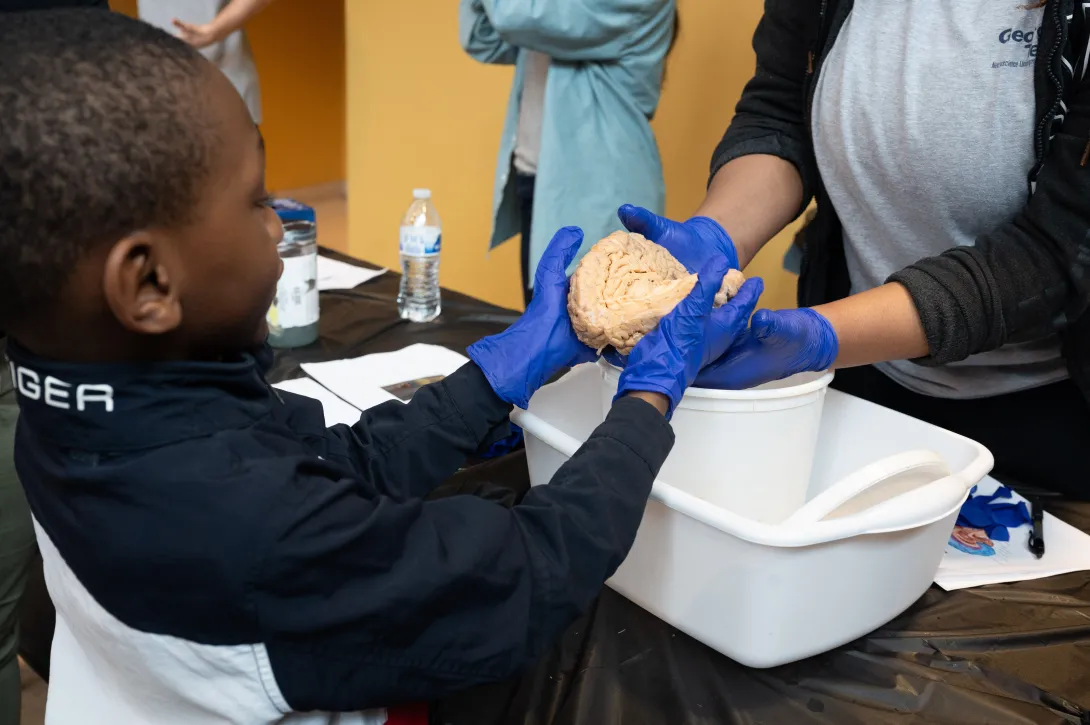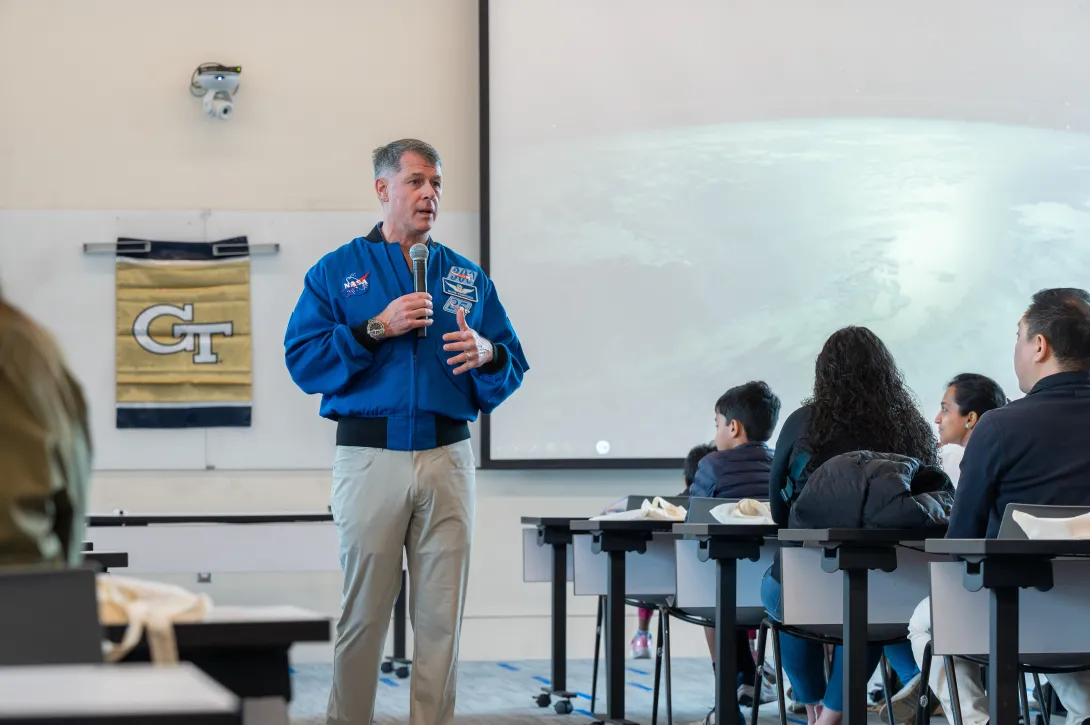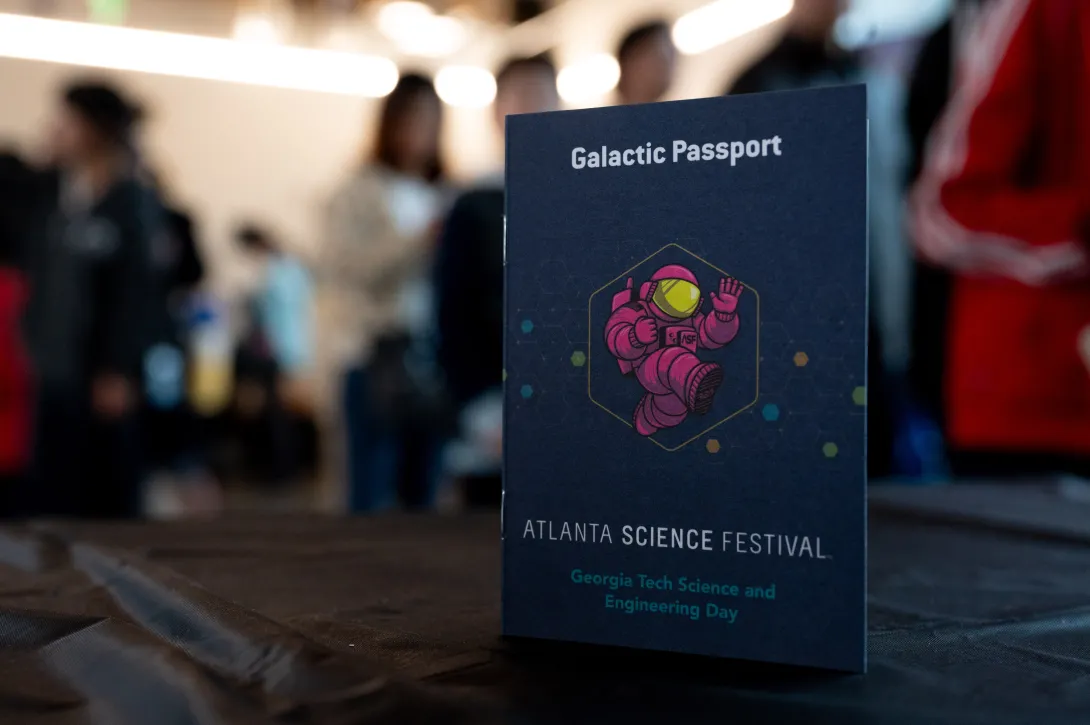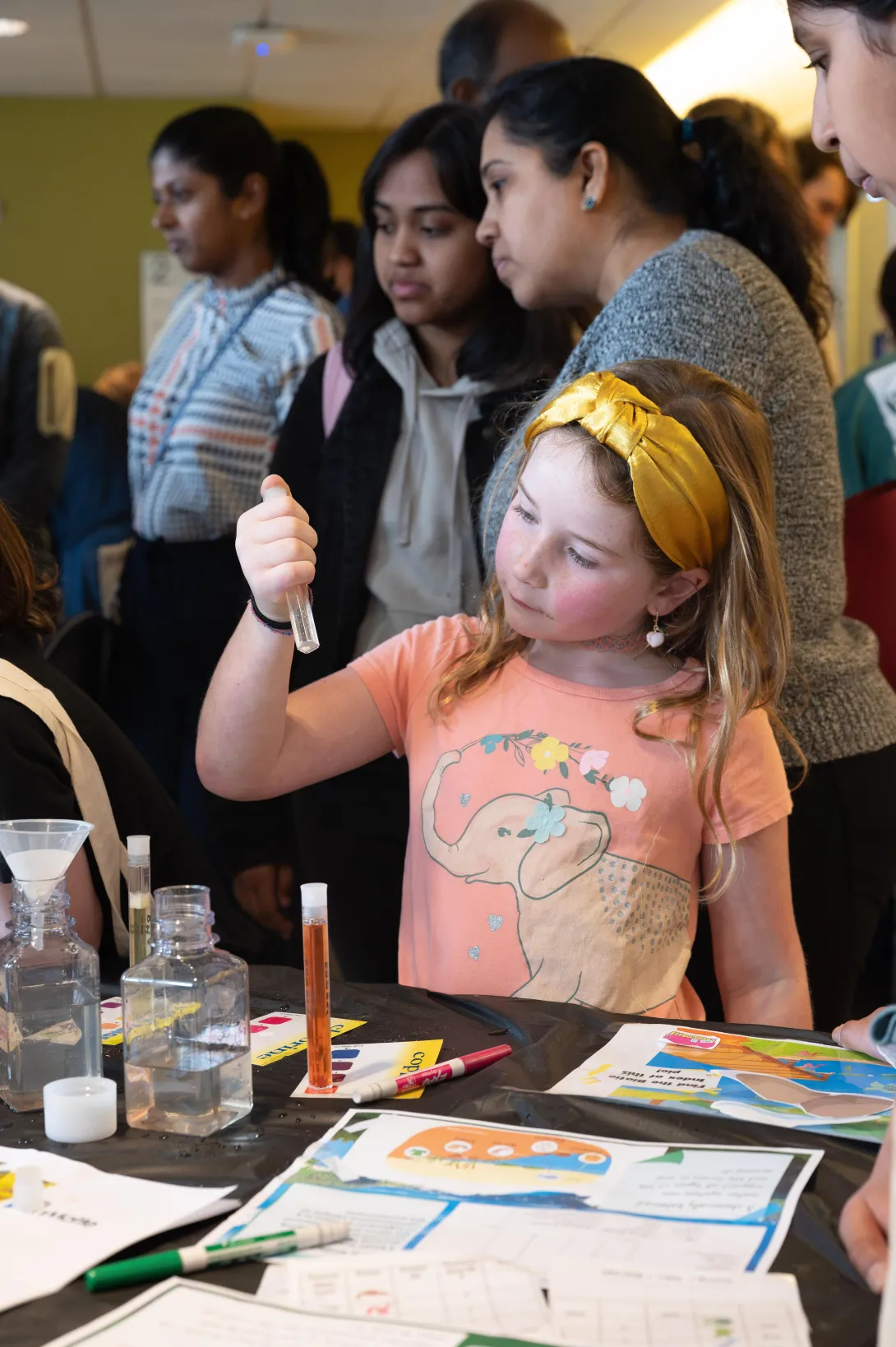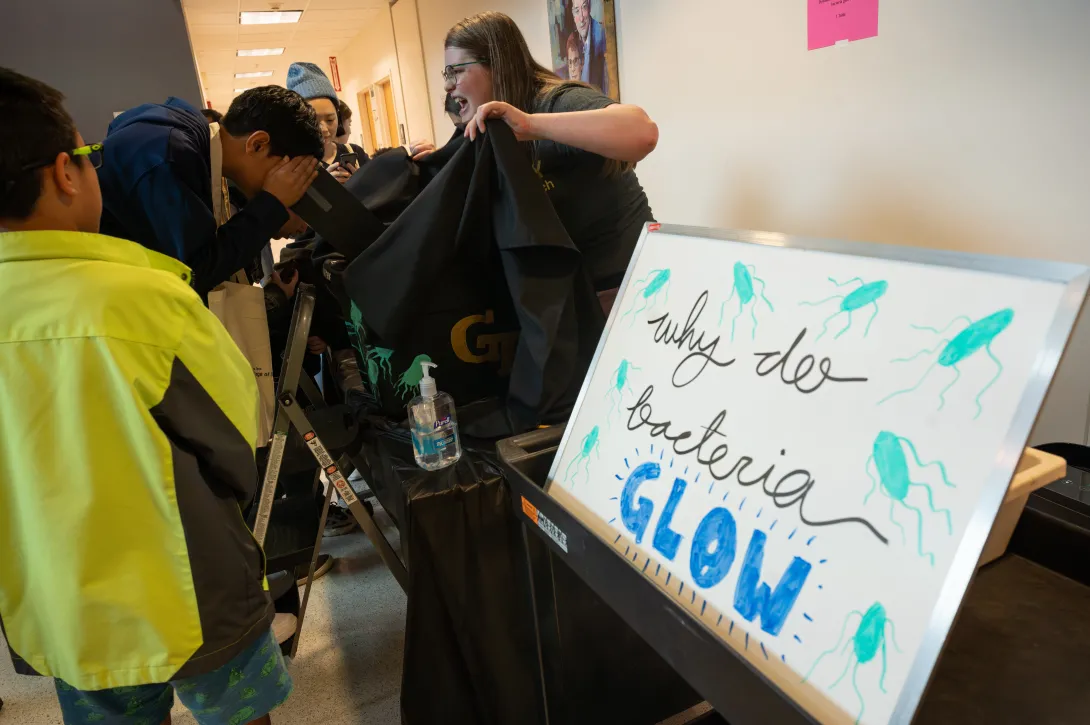Apr. 23, 2025
Georgia Tech professors Michelle LaPlaca and W. Hong Yeo have been selected as recipients of Peterson Professorships with the Children’s Healthcare of Atlanta Pediatric Technology Center (PTC) at Georgia Tech. The professorships, supported by the G.P. “Bud” Peterson and Valerie H. Peterson Faculty Endowment Fund, are meant to further energize the Georgia Tech and Children’s partnership by engaging and empowering researchers involved in pediatrics.
In a joint statement, PTC co-directors Wilbur Lam and Stanislav Emelianov said, “The appointment of Dr. LaPlaca and Dr. Yeo as Peterson Professors exemplifies the vision of Bud and Valerie Peterson — advancing innovation and collaboration through the Pediatric Technology Center to bring breakthrough ideas from the lab to the bedside, improving the lives of children and transforming healthcare.”
LaPlaca is a professor and associate chair for Faculty Development in the Department of Biomedical Engineering, a joint department between Georgia Tech and Emory University. Her research is focused on traumatic brain injury and concussion, concentrating on sources of heterogeneity and clinical translation. Specifically, she is working on biomarker discovery, the role of the glymphatic system, and novel virtual reality neurological assessments.
“I am thrilled to be chosen as one of the Peterson Professors and appreciate Bud and Valerie Peterson’s dedication to pediatric research,” she said. “The professorship will allow me to broaden research in pediatric concussion assessment and college student concussion awareness, as well as to identify biomarkers in experimental models of brain injury.”
In addition to the research lab, LaPlaca will work with an undergraduate research class called Concussion Connect, which is part of the Vertically Integrated Projects program at Georgia Tech.
“Through the PTC, Georgia Tech and Children’s will positively impact brain health in Georgia’s pediatric population,” said LaPlaca.
Yeo is the Harris Saunders, Jr. Professor in the George W. Woodruff School of Mechanical Engineering and the director of the Wearable Intelligent Systems and Healthcare Center at Georgia Tech. His research focuses on nanomanufacturing and membrane electronics to develop soft biomedical devices aimed at improving disease diagnostics, therapeutics, and rehabilitation.
“I am truly honored to be awarded the Peterson Professorship from the Children’s PTC at Georgia Tech,” he said. “This recognition will greatly enhance my research efforts in developing soft bioelectronics aimed at advancing pediatric healthcare, as well as expand education opportunities for the next generation of undergraduate and graduate students interested in creating innovative medical devices that align seamlessly with the recent NSF Research Traineeship grant I received. I am eager to contribute to the dynamic partnership between Georgia Tech and Children’s Healthcare of Atlanta and to empower innovative solutions that will improve the lives of children.”
The Peterson Professorships honor the former Georgia Tech President and First Lady, whose vision for the importance of research in improving pediatric healthcare has had an enormous positive impact on the care of pediatric patients in our state and region.
The Children’s PTC at Georgia Tech brings clinical experts from Children’s together with Georgia Tech scientists and engineers to develop technological solutions to problems in the health and care of children. Children’s PTC provides extraordinary opportunities for interdisciplinary collaboration in pediatrics, creating breakthrough discoveries that often can only be found at the intersection of multiple disciplines. These collaborations also allow us to bring discoveries to the clinic and the bedside, thereby enhancing the lives of children and young adults. The mission of the PTC is to establish the world’s leading program in the development of technological solutions for children’s health, focused on three strategic areas that will have a lasting impact on Georgia’s kids and beyond.
Jan. 08, 2025
Georgia Tech’s Executive Vice President for Research search committee has selected three finalists. Each candidate will visit campus and present a seminar sharing their broad vision for the Institute's research enterprise. The seminars are open to all faculty, students, and staff across the campus community. Interested individuals can attend in person or register to participate via Zoom (pre-registration is required).
Sep. 13, 2024
Anna Ivanova, assistant professor in the School of Psychology, was recently named to the MIT Technology Review’s 35 Innovators Under 35 for 2024 for her work on language processing in the human brain and artificial intelligence applications.
A key pillar of Ivanova’s work involves large language models (LLM) commonly used in artificial intelligence tools like ChatGPT. By approaching the study of LLMs with cognitive science techniques, Ivanova hopes to bring us closer to more functional AIs — and a better understanding of the brain.
“I am happy that, these days, language and human cognition are topics that the world cares deeply about, thanks to recent developments in AI,” says Ivanova, who is also a member of Georgia Tech’s Neuro Next Initiative, a burgeoning interdisciplinary research hub for neuroscience, neurotechnology, and society. “Not only are these topics important, but they are also fun to study.”
Learn more about Ivanova’s research.
News Contact
Audra Davidson
Communications Program Manager
Neuro Next Initiative
May. 10, 2024
Faculty from the George W. Woodruff School of Mechanical Engineering, including Associate Professors Gregory Sawicki and Aaron Young, have been awarded a five-year, $2.6 million Research Project Grant (R01) from the National Institutes of Health (NIH).
“We are grateful to our NIH sponsor for this award to improve treatment of post-stroke individuals using advanced robotic solutions,” said Young, who is also affiliated with Georgia Tech's Neuro Next Initiative.
The R01 will support a project focused on using optimization and artificial intelligence to personalize exoskeleton assistance for individuals with symptoms resulting from stroke. Sawicki and Young will collaborate with researchers from the Emory Rehabilitation Hospital including Associate Professor Trisha Kesar.
“As a stroke researcher, I am eagerly looking forward to making progress on this project, and paving the way for leading-edge technologies and technology-driven treatment strategies that maximize functional independence and quality of life of people with neuro-pathologies," said Kesar.
The intervention for study participants will include a training therapy program that will use biofeedback to increase the efficiency of exosuits for wearers.
Kinsey Herrin, senior research scientist in the Woodruff School and Neuro Next Initiative affiliate, explained the extended benefits of the study, including being able to increase safety for stroke patients who are moving outdoors. “One aspect of this project is testing our technologies on stroke survivors as they're walking outside. Being outside is a small thing that many of us take for granted, but a devastating loss for many following a stroke.”
Sawicki, who is also an associate professor in the School of Biological Sciences and core faculty in Georgia Tech's Institute for Robotics and Intelligent Machines, is also looking forward to the project. "This new project is truly a tour de force that leverages a highly talented interdisciplinary team of engineers, clinical scientists, and prosthetics/orthotics experts who all bring key elements needed to build assistive technology that can work in real-world scenarios."
News Contact
Chloe Arrington
Communications Officer II
George W. Woodruff School of Mechanical Engineering
Mar. 21, 2024
Georgia Tech opened the 11th annual Atlanta Science Festival (ASF) with record attendance for Science and Engineering Day. Despite the drizzly weather, about 4,000 people of all ages from throughout metro Atlanta — more than double the number of attendees in 2023 — visited campus on Saturday, March 9, 2024, for the space-themed event. They explored more than 45 exhibitions and hands-on activities related to art, robotics, nanotechnology, chemical and systems engineering, and biology, as well as other STEAM areas.
Visitors began their investigations at “Earth” (the Kendeda Building for Innovative Sustainable Design), where they picked up a galactic passport specially designed to guide them from building to building — each designated with the name of a planet — and the demonstrations housed within.
At “Mars” (Marcus Nanotechnology Building), attendees measured their height in nanometers, experimented with fruit batteries, and took a window-tour of the largest cleanroom in the Southeast, where semiconductors are developed. Inside “Venus” (Parker H. Petit Biotech Building), budding scientists examined bioluminescent bacteria under a microscope and made Play-Doh models of the human brain. When visiting “Saturn” (Ford Environmental Sciences and Technology Building), visitors studied density by making DIY lava lamps and inspected human brain specimens the way a pathologist would.
“Getting to hold a human brain was cool,” said a 12-year-old participant from Alpharetta. “And I also liked comparing it to the brains of a pig and a mouse.”
Other activities included math games and puzzles, the opportunity to build an artificial hand and a gallery display of research-inspired artwork. Georgia Tech faculty, students, and staff hosted all the demonstrations and served as volunteers who helped Science and Engineering Day guests navigate campus and the demonstration sites.
For many participants, the undoubted highlight was the chance to hear a presentation by former NASA astronaut and Georgia Tech alumnus Shane Kimbrough, MS OR 1998. Kimbrough spent 388 days in space over three missions and served as commander of the International Space Station (ISS) in 2016. He captivated the standing-room-only crowd with photos and descriptions of his time living and working aboard the ISS and answered questions from the kids in the audience.
“It’s really exciting to see all the activities around campus today … we’re inspiring the next generation of scientists and explorers for our country,” Kimbrough said afterward.
The event was a resounding success for Georgia Tech and the Atlanta Science Fair.
Lauren Overton-Kirk, who organized the event for the Institute, said, "Georgia Tech Science and Engineering Day 2024 was so wonderful to share with the community. What started years ago as a day for young scientific exploration became an all-ages, space-themed scientific spectacular. You could feel the passion for learning fill the campus in a way only Georgia Tech could do.”
Both the Georgia Tech and the Atlanta Science Festival teams are looking forward to next year’s Science and Engineering Day.
“As one of the founding organizations of the Atlanta Science Festival, Georgia Tech has been deeply invested in sharing the Institute’s innovations with the community,” said Meisa Salaita, ASF co-director. “And that investment was deeply evident on March 9th as they opened their doors to kick off the 11th annual Science Festival. Their students and faculty came out with enthusiasm to showcase science to the public. We couldn't be more thrilled with this partnership — and the many ways Tech has helped us show our community that Atlanta is a science city.”
News Contact
Shelley Wunder-Smith, Institute Communications
